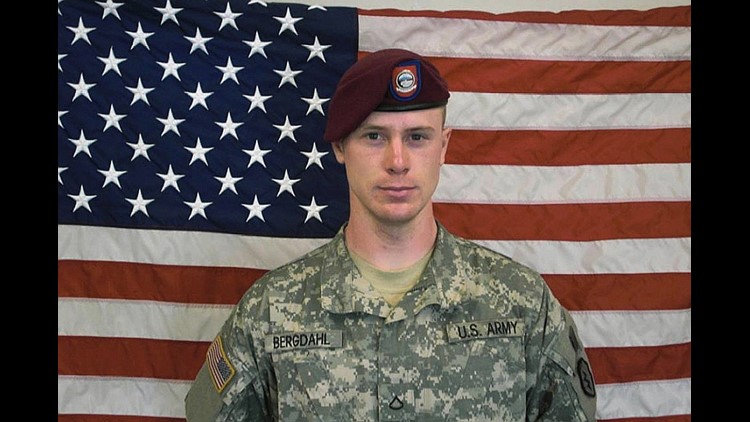Lawmakers were left out of the loop on Bowe Bergdahl for a reason: One small leak apparently would have gotten him killed.
That’s what Obama administration officials told senators at a classified briefing this week in defense of the decision to not notify Congress about the deal to free the captured Army sergeant in exchange for releasing five Taliban figures held at Guantanamo Bay.
Though the briefing was classified, the administration made sure word of the new rationale for its decision to go it alone got out.
Sen. Angus King of Maine, an independent who caucuses with Democrats, told CNN that administration briefers made clear both the threat to Bergdahl from a leak — and that he could talk publicly about that point.
“They had intelligence that, had even the fact of these discussions leaked out, there was a reasonable chance Bowe Bergdahl would have been killed,” King said.
No evidence for desertion
The question of what legislators should have known — and when — has helped propel a broader controversy over whether bringing home a soldier accused by comrades of deserting his unit was worth releasing the alleged terrorist leaders.
An Army fact-finding investigation conducted in the months after Bergdahl’s 2009 disappearance concluded that he left his outpost deliberately and on his own free will, according to a U.S. military official briefed on the report.
But there has been no definitive finding that Bergdahl deserted, because that would require knowing his intent — something Army officials couldn’t do without talking to the soldier.
Some soldiers involved in operations to find Bergdahl have said at least six soldiers were killed searching for him.
But a U.S. official told CNN that Pentagon and Army officials have looked at the soldiers’ claims, and “right now there is no evidence to back that up.”
Wanderlust and escape
Some have voiced conjecture that Bergdahl sought to join the Taliban, but he seemed eager to get away from them. He may have tried to run away two times, a U.S. official said.
In 2011, he reportedly succeeded.
His captors stopped keeping such a close eye on him, and Bergdahl used the opportunity to bolt, a Taliban source said, according to CNN’s Jake Tapper.
He survived on his own for three days, according to an account in the Daily Beast.
Then the Taliban found him hiding in a trench he’d dug with his bare hands.
“He fought like a boxer,” the Taliban source said, but he lost, and his captors dragged him back in shackles.
The occasion of his capture was at least the third time Bergdahl strayed out of bounds.
His wanderlust had become a serious problem, according to the Army investigation.
The first time he disappeared was during basic training in Irwin, California, when he slipped away to watch the sun set.
After arriving in Afghanistan, he went exploring again, fellow soldiers said, taking a stroll outside the wired perimeter of his outpost.
Under partisan fire
Republicans who once called for Bergdahl to be freed, now say the swap released hardened Taliban commanders who could attack American forces and interests.
But despite their criticism and anger from lawmakers over being left out of the loop, when the President decided to make the deal, the White House has argued Obama had the legal authority and moral high ground to do what he did.
“I make absolutely no apologies for making sure we get a young man back to his parents,” Obama told reporters Thursday at the end of the G7 summit in Belgium.
But the new rationale behind the decision has enhanced the perception of a White House scrambling to respond to the backlash.
Originally, the administration had given lawmakers a different line of reasoning, arguing that Bergdahl’s deteriorating health dictated fast, uncomplicated action.
The administration reiterated that point in this week’s briefing.
Senators were shown the so-called proof of life video of Bergdahl, which the administration has said shows the soldier in deteriorating health.
“He could barely talk. He couldn’t focus his eyes,” said Sen. King. The video had an effect on the room full of senators, he said.
Other senators who saw the video at Wednesday’s classified briefing said Bergdahl looked drugged, not sick. But King noted “there was a dead silence in the room” after it played.
Recovery and accusations
The accusations of desertion continue to hang over Bergdahl’s head, as he recovers in a U.S. military hospital in Germany. He is conversing in English and has become more engaged in treatment, a Pentagon spokesman said.
Former Army Staff Sgt. Justin Gerleve, Bergdahl’s former squad leader, told CNN’s “The Lead With Jake Tapper” that he believes Bergdahl is at least partly to blame for the deaths of soldiers who went to find him.
“I can’t really say I blame Bergdahl to fullest extent, but if he wouldn’t have deserted us, these soldiers very well could have been in a different place at a different time,” he said.
Gerleve also said he heard radio intercepts that an American “was running around looking for people to speak English and wanted to seek out the Taliban.”
History of a deal
Consideration of a deal with the Taliban dates back several years but failed to gain traction when the possibility first emerged in 2011, according to sources.
A Defense Department official has said that Robert Gates, Obama’s first defense secretary, opposed the idea back then, as did his successor, Leon Panetta, and former Secretary of State Hillary Clinton.
Sen. King noted that the Taliban figures involved in the swap may have been freed soon in any event.
They were being held in Guantanamo as enemy combatants, he said. Legally, after hostilities in Afghanistan end, they would have to be set free.
It was an opportune moment to use them as bargaining chips for Bergdahl.



